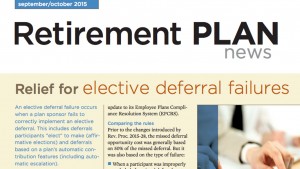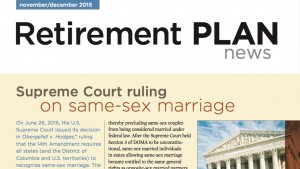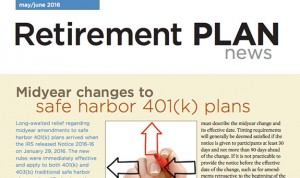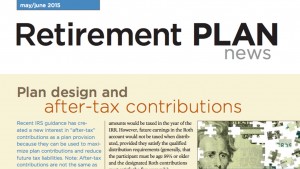A Defined Contribution Plan is a plan that provides an individual account for each participant. Most Defined Contribution plans have discretionary contributions. However, there are a small number of defined contribution plans that provide for a mandatory contribution formula, such as a Money Purchase Plan or a Target Benefit Plan.
Types of Defined Contribution Plans are as Follows:
- Profit Sharing Plan – A type of defined contribution plan under which the employer agrees to make discretionary contributions (usually out of profits). Retirement benefits are based on the amount in the participant’s individual account balance at retirement. The account balance depends on contributions made and earnings credited through the years.
- Money Purchase Pension Plan – A type of defined contribution plan under which the employer contribution is mandatory, defined by the plan document, and is usually based on participant compensation. Retirement benefits under the plan are based on the amount in the participant’s individual account balance at retirement. The account balance depends on contributions made and earnings credited through the years.
- Target Benefit Plan – A cross between a defined benefit plan and a money purchase plan. Similar to a defined benefit plan, the annual contribution is determined by calculating an amount to accumulate a fund sufficient to pay a targeted retirement benefit to each participant on reaching retirement. Similar to a money purchase plan, though, contributions are allocated to separate accounts maintained for each participant and are subject to limitations specific to defined contribution plans. The account balance depends on contributions made and earnings credited through the years. Actual retirement benefits will differ from the “target” and are based on the amount in the participant’s individual account balance at retirement.
- Cross-Test & Age-Weight Plans – These plans generally have complex formulas for allocating contributions under a profit sharing arrangement. Depending on the actual plan’s formula, the allocation may be based on age, compensation, employee classification, service, or a combination of these factors. The account balance depends on contributions made and earnings credited through the years.
- Cash or Deferred Section 401(k) Plans – An arrangement (defined by Internal Revenue Code Section 401(k)) under which a covered employee can elect to defer income by making pre-tax contributions to a profit sharing or stock bonus plan. A 401(k) plan may also provide for matching contributions and/or profit sharing contributions.
- Employee Stock Ownership Plan (ESOP) – A profit sharing, stock bonus, or (rarely) a money purchase pension plan, the funds of which must be invested primarily in employer company stock. Unlike other plans, an ESOP may borrow from the employer or use the employer’s credit to acquire company stock. Complex rules govern such transactions, however.









